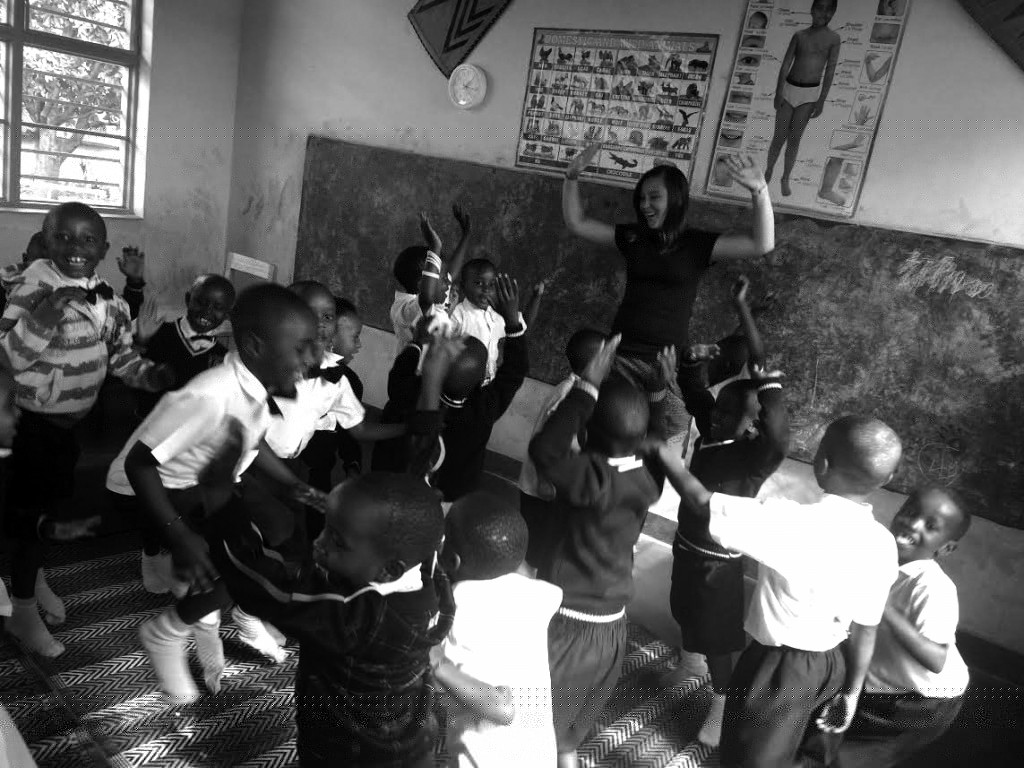Rwanda taught me to love. The land of a thousand hills is home to a beautiful and vibrant culture in which I was lucky enough to study abroad. I took several classes on East African cultures, religions, art and history, with an emphasis on peacebuilding and reconciliation. Throughout my four months there, I had the opportunity to participate in various cultural activities, both traditional and modern. I heard a cowsinger serenade a grazing herd, learned how to dance (sort of—I tried), made imigongo and learned how to cook chapati and mandazi. My limited kinyarwanda gradually improved as I spent many of my days at Kimironko market. I explored different regions of the country, hiking and visiting a tea plantation in the west and going on a safari in the east. I even went white water rafting on the Nile River in Uganda.
Yet it is hard to forget that Rwanda is also a place where horrific genocide occurred just 22 years ago. I am 22 years old; I am the age of the genocide. Everyone my age and older lived through it, remembers it and is haunted by it. In a country the size of Maryland almost 1 million people were killed in 100 days.
Thankfully, Rwanda’s story does not end there. In the 22 years since the genocide, the Rwandan miracle has been building towards peace, and it is truly amazing to witness. It was an incredibly difficult but important narrative to study. My heart broke as I visited genocide memorials and heard firsthand accounts from survivors, but I stood in awe of the strength and courage of the land of a thousand hills.
I will never forget meeting Alice and Emmanuel. Alice was a victim of the genocide; she lost her arm, and her infant daughter was killed. Emmanuel is the man responsible. Yet now the two live side by side and consider one another friends. They shared their incredible story of the road to forgiveness over a cup of tea. Although it was not an easy path and certainly did not happen overnight, Emmanuel had the humility to seek forgiveness, and Alice had the courage to respond with mercy.
In some form or another, we all have those moments of wondering what comes next. The aftermath of a painful conflict, whether physical or verbal, brings uncertainty and often fuels resentment. It would have been easy for Rwanda to remain a divided country, for this catastrophic event to irreversibly polarize the Hutus and the Tutsis. Rwanda chose to confront its past, remembering its hurt and its wrongs but refusing to settle there. Acknowledging the past while looking to the future, they chose to reclaim their land for all Rwandans. They chose love.
Rwanda showed me that love is a transformative choice that brings healing to our brokenness. I learned what it means to choose to love, even when it would be easier to ignore or to hate. I saw mercy as victims and perpetrators stood hand in hand. I saw hope. I learned what it means to give of yourself and that suffering is often a corollary of love; in order to love someone well, you must be willing to share in their burdens. I learned the importance of humility and of doing life with people. And I learned how hard it is to say goodbye. There are a lot of things I miss about Rwanda—the rolling hills, the ideal weather, the delicious food—but mostly I miss the people. And someday, somehow I will return.
This article was originally published in Eastern University’s PsiChi Journal and is being reprinted in The Waltonian with permission.

